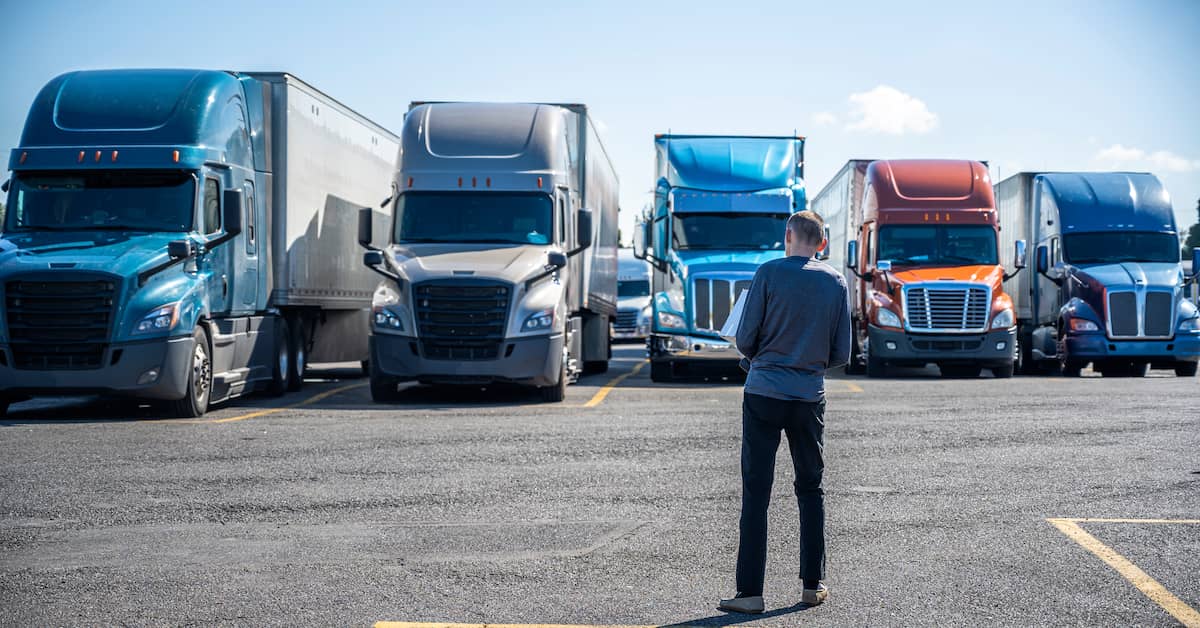
Federal & State Trucking Regulations
Federal and state trucking regulations apply to commercial truckers and are put in place to prevent truck accidents. Truck drivers nationwide know they must abide by these strict sets of rules. These rules and regulations help to avoid accidents, injuries, and fatalities.
The Federal Motor Carrier Safety Administration (FMCSA) is the agency of the Department of Transportation (DOT) in charge of many of the regulations put in place for those who operate commercial vehicles. However, states like New York and New Jersey have some differing regulations for trucks that operate intrastate.
When a truck driver fails to follow federal or state trucking regulations in an accident where someone is injured, their violations may be presented as evidence of negligence in a claim for damages.
If you have been injured and need an experienced truck accident attorney, call Maggiano, DiGirolamo & Lizzi at (201) 585-9111 (New Jersey) or (212) 543-1600 (New York) for a FREE consultation.
Federal Trucking Regulations
Federal trucking regulations in the United States are a complex set of rules established by the FMCSA that govern the operation of commercial motor vehicles on public roads. These regulations are designed to ensure the safety of both truck drivers and other road users.
Some of the essential points of federal trucking regulations in the U.S. include requirements for driver qualifications, hours of service, drug and alcohol testing, vehicle safety, and weight limits. Without some of these rules, the highways would be swarmed with drunk or fatigued drivers with poorly maintained trucks carrying unsafe loads.
Driver Qualifications
Federal trucking regulations require commercial motor vehicle drivers to hold a valid commercial driver’s license (CDL) and meet certain qualifications. According to 49 CFR 391.11, to qualify to drive a commercial motor vehicle, a person must:
- Be at least 21 years old
- Speak and read the English language sufficiently to converse, understand traffic signs and signals, respond to official inquiries, and keep reports and records
- Be able to safely operate a commercial motor vehicle due to experience and/or training
- Have been medically qualified as physically able to drive a commercial motor vehicle
- Have been issued a valid commercial motor vehicle operator’s license by only one state or jurisdiction
- Have not been disqualified to drive a commercial motor vehicle according to the rules in § 391.15
- Have completed a driver’s road test and been issued a certificate, or have presented an acceptable equivalent
Hours of Service
The Federal Motor Carrier Safety Administration (FMCSA) has established rules governing the number of hours that commercial motor vehicle drivers may work each day and each week. These rules, called the hours of service, are designed to prevent driver fatigue and promote road safety.
Drivers are limited to 11 hours of driving time in a 14-hour period, after which they must take a 10-hour break. Per the FMCSA, “Drivers must take a 30-minute break when they have driven for a period of 8 cumulative hours without at least a 30-minute interruption.” They are also limited to a maximum of 60 hours of driving time in a seven-day period, or 70 hours in an eight-day period.
Electronic Logging Devices
In 2017, the FMCSA began requiring commercial motor vehicle drivers to use electronic logging devices (ELDs) to track their hours of service. ELDs are designed to replace traditional paper logbooks and provide a more accurate and reliable way of tracking driver hours.
Drug and Alcohol Testing
Federal trucking regulations require commercial motor vehicle drivers to undergo regular drug and alcohol testing to ensure they are not under the influence while operating their vehicle. There were 13,384 drunk driving-related deaths in 2021. With the amount of time truck drivers spend on the road, helping to ensure their sobriety will save lives.
10 CFR § 26.31(c) lays out the conditions for the frequency of drug and alcohol testing. Commercial drivers should be tested pre-employment, for cause, post-accident, to follow-up on an abstinence plan, and on a random and unannounced basis.
Vehicle Safety
Commercial motor vehicles are to be regularly inspected and maintained to ensure they are in safe operating condition. These inspections cover everything from brakes and tires to lighting and exhaust systems. Additionally, drivers are required to perform pre-trip inspections to ensure their vehicle is safe to operate before each trip.
Weight Limits & Cargo Securement
Federal trucking regulations require commercial motor vehicles to adhere to certain weight limits to protect the highway and interstate system. According to 23 CFR § 658.17, the maximum gross vehicle weight is 80,000 lbs. with a limit of 20,000 lbs. on one axle or 34,000 on tandem axles.
Commercial vehicles must also have their cargo properly secured to prevent it from shifting or falling off the vehicle while in transit. These regulations dictate the minimum number of tie-downs required based on the size and weight of the cargo, as well as how the tie-downs should be anchored and tensioned.
Overall, federal trucking regulations in the U.S. are designed to promote road safety. These regulations are constantly evolving to keep pace with changing technology and industry practices. It is the responsibility of commercial motor vehicle drivers and companies to stay up-to-date with these trucking regulations to avoid fines and other penalties.
Read More: Truck Accidents: All You Need to Know
What Is the Difference Between Federal & State Trucking Regulations?
The primary difference is pretty simple to understand. The FMCSA is responsible for regulating interstate trucking across the entire United States, while each state also has its own regulations for intrastate trucking operations. Though interstate carriers usually adopt state law and intrastate operations usually adopt federal regulations, there are some differences in trucking regulations between the federal and state laws that should be touched upon.
New York & New Jersey State Trucking Regulations
The New York State Department of Transportation (NYSDOT) and the New Jersey Department of Transportation (NJDOT) are the state agencies that regulate intrastate trucking within New York and New Jersey, respectively. There are a number of differences between the state and federal trucking regulations.
The FMCSA and the states of New York and New Jersey each have regulations regarding driver qualifications. However, in addition to the federal requirements, New York and New Jersey also require drivers to complete a specialized training course before obtaining their CDL.
Then, New York and New Jersey have slightly different rules regarding hours of service for intrastate trucking operations. New York’s laws agree with 11 hours of driving time. However, that is in a 24-hour period instead of a 14-hour period. New Jersey, on the other hand, allows a maximum of 12 hours of driving time in a 24-hour period.
Both New York and New Jersey adhere to the federal trucking regulations regarding vehicle safety. The states also require that commercial motor vehicles undergo an annual inspection and display a valid inspection sticker.
All three agencies vary slightly on weight limits. They agree on an 80,000 lb. maximum gross weight, but New York and New Jersey each have a 22,400 lb. maximum on one axle in intrastate operations. Whereas New York specifies a maximum for tandem axles as 36,000 lbs. Furthermore, both states require cargo be secured in a way that prevents it from obscuring the driver’s view of the road, in addition to the FMCSA cargo securement standards.
Contact a Truck Accident Lawyer for Help
Trucking regulations are meant to help protect everyone on the road. However, trucking companies often complain that these laws make it difficult for them to maximize their profits. Some may cut corners in order to make more money. If regulations have been violated, injured victims may be able to make a case for negligence.
If you’ve been injured in a truck accident in New York or New Jersey, contact Maggiano, DiGirolamo & Lizzi for a FREE case evaluation.
Our truck accident lawyers understand the complex system of regulations involved in your case, and we would love to help you pursue the compensation you deserve.


















